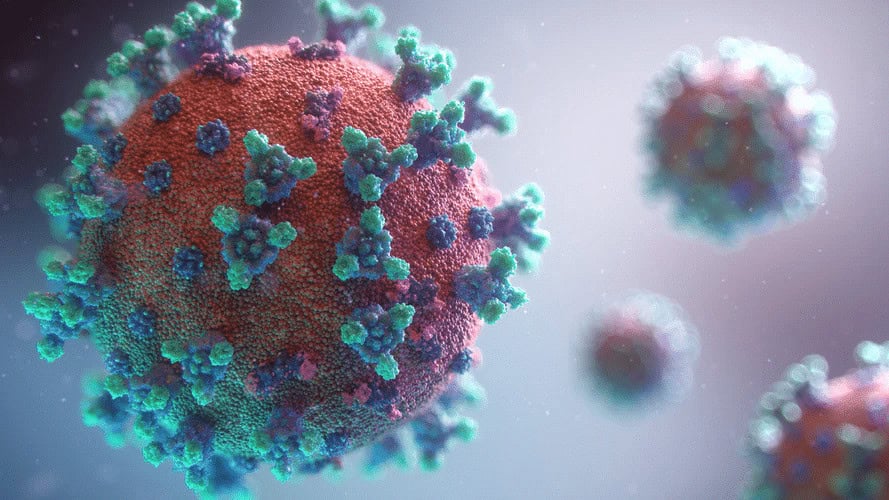Who Are Epidemiologists? Is Epidemiology The Right Career Choice?
Updated: June 19, 2024
Published: August 24, 2021

The career of an epidemiologist is crucial, and the recent years have placed a spotlight on the amazing people in the field. If you’re interested in the career of an epidemiologist, or want to know how to become an epidemiologist, we’ll tell you everything you need to know in this article — from an epidemiologist salary expectancy, to an epidemiologist job description. But first, let’s define epidemiology.
What is Epidemiology?
The field of epidemiology studies diseases; more specifically, the cause, effect, frequency, and patterns of disease across populations.
Epidemiology provides a scientific foundation for public healthcare, as well as strategies for disease prevention and cures.
The field includes the study of biology, biostatistics, and social sciences, in order to assess risks and patterns in public healthcare.
Who are Epidemiologists?
Epidemiologists, or “disease detectives,” study outbreaks of diseases and implement strategies to contain and prevent them. They analyze pandemics, such as the recent COVID-19 virus, or small local outbreaks, in order to investigate the cause, contain the spread, identify groups of risk, and collect data for further prevention measures.
Epidemiologists will collect data about an outbreak’s location and cause, as well as how it affects different communities. This means that epidemiologists are both scientists and public service agents who aim to improve and maintain public health.

What Do Epidemiologists Do?
The role of an epidemiologist includes collecting and analyzing data in a lab, and then communicating this information to relevant public authorities.
When an outbreak is first detected, an epidemiologist will investigate who is getting sick, what the symptoms are, where they got sick, etc., in order to determine the source and cause of the disease.
Epidemiologists will create a response strategy for outbreaks, and continue to monitor the effectiveness of the strategies as it progresses.
For example, once a vaccine is created for a specific disease, an epidemiologist will track the success of the vaccine and look out for mutated strains of the disease in order to manage it swiftly and effectively.

How to Become an Epidemiologist
An epidemiologist will need a master’s degree in epidemiology in order to work in the full role.
However, work experience and education in related fields can go a long way toward procuring a dream epidemiologist job and gaining hands-on practice.
A potential epidemiologist can earn a bachelor’s degree in a related field such as public health, health science, biostatistics, medicine, or nursing. After earning a bachelor’s degree, it is possible to begin working in the health department and gaining valuable experience while completing a master’s degree in epidemiology.
Degrees for an Epidemiologist Career
Bachelor’s degree
As mentioned above, a prospective epidemiologist can take a number of bachelor’s degrees in related fields of public health and medicine.
Many of these degrees include some basic courses in epidemiology, and some degrees, such as biostatistics, prepare students with the foundational skills to continue on to an education and career in epidemiology.
Master’s degree
It is necessary to earn a master’s degree from an accredited institution in order to become an epidemiologist. Many epidemiologists will earn a master’s degree in public health with a concentration in epidemiology.
However, recently the field of epidemiology has become more popularized and a master’s degree in epidemiology is more available. Most master’s degree programs will include at least a year of internship in the field.
Doctoral degree
Some research and specialization jobs within epidemiology require a doctoral degree. A doctoral degree in epidemiology will usually consist of one to three years of further education, as well as a doctoral dissertation.
An epidemiologist with a doctoral degree will be able to work in more areas of the field, such as cancer research, as well as teaching and in-depth research.
Epidemiologist Careers: Salary and Growth
Salary
According to the Bureau of Labor Statistics, an epidemiologist makes an average of $74,560 annually (as of 2020), with the lower 10% making an annual $49,140, and the 10% on the high end earning an annual salary of $126,040.
Scientific research and development services are on the higher end of the salary spectrum, with an average of $99,020. Epidemiology careers in state, local, or private hospitals make an average of $84,420. On the lower end, teaching epidemiology in universities or colleges make an average salary of $67,700, while jobs in local or state governments make an average of $68,500 to $70,470.
Growth
According to the Bureau of Labor Statistics, the field has experienced a 4% job growth, and is predicted to increase 10% between 2020-2030. This prediction may even increase if further pandemics occur during that time, making epidemiology a necessary field in the spotlight.
Work place
Those who wish to work as epidemiologists in public health can work in universities or government organizations such as the Center for Disease Control (CDC), the World Health Organization (WHO), or the National Institute of Health (NIH).
Full-time epidemiologists will typically work an average work week and schedule. In the occurrence of public emergencies, epidemiologists may experience a slightly irregular schedule in order to finish fieldwork and other time-sensitive duties.
Wrap Up
A career in epidemiology is an important, fulfilling, and lucrative field for those who wish to affect society in a positive way through medicine and research. An epidemiologist ensures the safety of many, and conducts research to prevent, contain, and even cure disease.
If you’re interested in public health, detecting patterns, medicine, and curing diseases, epidemiology might be a great career choice for you.
University of the People offers an online associate’s and bachelor’s degree in Health Science, so that you can earn your degree at your own pace, and get one step closer to your desired career in epidemiology. We value making education accessible to all, and so our degrees are all tuition-free and completely online.
